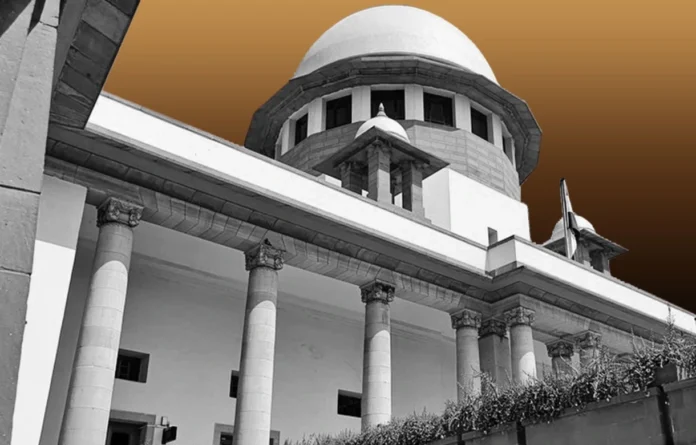The Supreme Court on Friday, while directing the Union government not to grant ‘ex-post facto’ Environmental Clearances (EC) in future, set aside the previous Office Memoranda and notifications which allowed for the grant of ex-post facto Environmental Clearance for mining projects.
The order was passed by the Bench of Justice Abhay S Oka and Justice Ujjal Bhuyan.
As per the verdict, the projects that commenced without obtaining the mandatory prior Environmental Clearance, could not be regularised by granting them EC in future.
Reading out the operative portion of the judgment, Justice Oka said that there were no equities in favour of those who committed gross illegalities without obtaining prior ECs. Those who acted without ECs were not illiterates. They were real estate developers, companies, mining industries, public sector undertakings, etc.
Noting that the illegalities were committed on a voluntary basis, the Apex Court directed the Union of India not to come out with any version of the 2017 notification that provided the grant of ex-post facto EC.
The Bench held as illegal, the 2017 notification and the 2021 OM, along with all circulars, orders, and notifications issued to give effect to these notifications, and struck them down.
It further restrained the Centre from issuing circulars, orders, notifications and OMs providing for the grant of ex-post facto EC in any form or manner.
The ECs already granted under the 2017 notification and the 2021 OM shall remain unaffected, it added.
The two Office Memoranda issued by the Centre in July 2021 and January 2022 allowed ex-post facto environmental clearance for mining and other projects that commenced operations without obtaining the prior clearance mandated under the Environment Impact Assessment (EIA) Notification, 2006.
The Bench passed the order on a batch of petitions filed by NGO Vanashakti and others. The petitioners challenged the legality of the Standard Operating Procedure (SOP) outlined in the two government memoranda for regularising projects that had begun without environmental clearance.
Vanashakti had earlier argued that the EIA Notification, 2006, clearly required prior environmental clearance before a project could start, and this condition was not open to modification.
The NGO pointed out that the phrase ‘prior environmental clearance’ appeared 34 times in the notification, stressing the mandatory nature of the requirement.
The petitioners contended that the 2021 and 2022 memoranda contradicted this requirement by creating a framework that allowed post-facto approval. They further submitted that the January 2022 memorandum attempted to process clearance applications even after the expiry of the window provided in the original EIA notification.
On January 2, 2024, the Apex Court had granted an interim stay on the operation of the impugned Office Memoranda .
In July 2024, the Ministry of Environment, Forest and Climate Change filed a counter-affidavit in a connected matter filed by NGO One Earth, which had challenged a March 14, 2017 notification, along with a July 7, 2021 Office Memorandum.
The affidavit filed by MEFCC submitted that the 2017 Notification provided a six-month window for violators to apply for environmental clearance and that this window closed on September 13, 2017.
It said the July 2021 Office Memorandum was issued to deal with violation cases not covered by the 2017 notification, as there was no existing procedure under the 2006 notification for dealing with projects that began without prior clearance.
The Union argued that the July 2021 Office Memorandum did not dilute the requirement of prior clearance or grant retrospective clearance. Instead, it was a separate and independent regulation to handle ongoing violations. The affidavit listed other earlier regulatory measures issued by the Ministry.
The Centre contended that denying such projects the opportunity to regularise their operations would lead to demolition and removal. It maintained that its measures were consistent with the Environment (Protection) Act, 1986, and meant to assess & prevent environmental damage through the application of the polluter pays principle.
Representing the Union government, Additional Solicitor General (ASG) Aishwarya Bhati defended the July 7, 2021 Office Memorandum as a mechanism for addressing violations of the EIA notification.
She submitted that the measure aimed to deal with the projects that had commenced without proper clearance and highlighted that consequences such as demolition also caused environmental damage, drawing attention to the demolition of Supertech Twin Towers in 2021.


